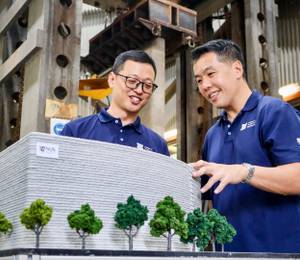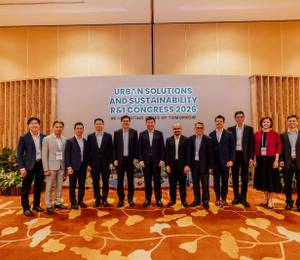Mexico City, Mexico – Mexican art collector Fernanda Raíz plans a research museum for people, art, and science exploring the possibility of harmonious coexistence in the 21st century.
The name of the research museum, Xinatli, is based on the terms Xinachtli from the Nahua language and describes the moment in which a seed germinates, growing into its life-giving form. The phrase symbolises creation and honours the potential for metamorphosis.
Construction is planned for an area in the Mexican jungle to the south of the country, in the tropical conditions of the rainforest. The site will include a newly arranged stepped pyramid housing the main exhibition areas, along with several art pavilions and a terrestrial institute operated by scientists.
A 90-hectare area of cleared forest, previously affected by illegal logging, has been selected for the site and will be reforested in the coming years. Testamentary provisions stipulate a transitional use of the land, which after one generation will be returned to Earth as an entity – represented by environmental representatives and local communities who will become its sole caretakers and stewards. Each of the complex’s facilities is designed to explore the ‘pluriverse’ of life within biodiversity and human communities and carry this knowledge forward in art and research.
Xinatli is grounded in the decision to contribute to an urgent climate change within the mind, utilizing art and aesthetic perception, an ecologically oriented way of building, and a cultural engagement with the other to help preserve the permanence of all life on our planet.
Xinatli's founder, the Mexican art collector Fernanda Raíz, encapsulates this undertaking: “Until now, museums have usually been a space where power is put on display. A 21st century museum should not be a showcase for power but instead a place that advocates for greater equity: in ecology, in art and in society.”












